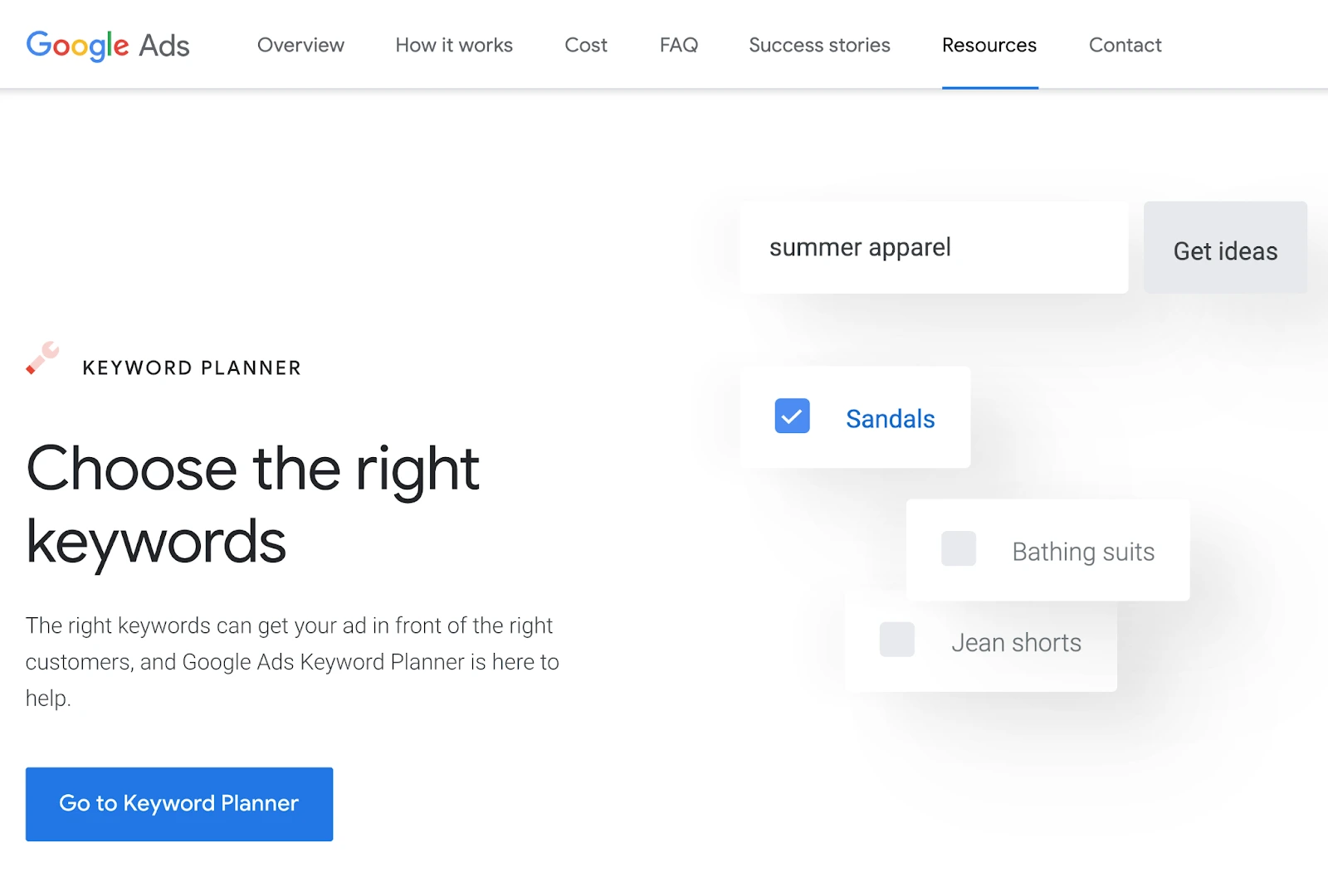
SEO Strategies: Leveraging Related Keywords Finder Tools for Content Optimization
Welcome to the bustling world of SEO, where the right keywords can be your golden ticket to digital success. In this comprehensive guide, we'll dive into how related keyword finder tool can elevate your content optimization game. Get ready to unlock the full potential of your SEO strategy!
Harnessing the Power of Related Keywords in SEO
Related keywords are more than just synonyms; they're the secret sauce that adds flavor to your SEO strategy. These are terms closely linked to your primary keywords, expanding your content's reach and relevance.
Why Are Related Keywords Important?
- Enhancing Content Relevance: Incorporating related keywords makes your content more comprehensive and relevant, which search engines love. It's like giving search engines a clearer map of what your content is all about.
- Boosting Organic Reach: By tapping into a wider range of related terms, you cast a broader net, capturing more organic traffic. It's all about being where your audience is searching.
- Improving User Experience: When your content resonates with what users are seeking, their experience improves. Happy users mean better engagement and, ultimately, better rankings.

Selecting the Right Related Keywords Finder Tool
Look for tools that offer a vast database of keywords, intuitive user interfaces, and detailed insights into keyword performance.
- Free vs. Paid Options: While free tools are great for beginners, investing in a paid tool can provide more in-depth analytics and a wider range of keyword suggestions.
- Integration with Other SEO Tools: Choose a tool that plays well with your other SEO tools. Seamless integration can streamline your optimization process.
Also Read: A Step-by-Step Tutorial on Using Keyword Research Tools | The Role of Keyword Research Tools in SEO Strategy
Implementing Related Keywords in Your Content

Sprinkle-related keywords throughout your content where they fit naturally – think titles, headers, and within the body text.
- Avoiding Overstuffing: The key is subtlety. Overusing keywords can backfire, making your content seem spammy. Balance is crucial.
- Updating Existing Content: Don’t forget your old posts. Revitalize them with related keywords to boost their relevance and freshness.
Crafting Content Around Related Keywords
Use related keywords to guide your content creation. They can inspire new topics or add depth to existing ones.
- Addressing User Queries: Think about the questions your audience might have. Use related keywords to shape content that answers these queries.
- Aligning with Search Intent: Every keyword has an intent behind it. Align your content with this intent to maximize user satisfaction and SEO success.
Measuring the Impact of Related Keywords

Keep an eye on how your rankings and traffic change after incorporating related keywords. This data is a goldmine for refining your strategy.
- Analyzing User Engagement: Beyond rankings, observe how users interact with your content. Are they staying longer, engaging more? These are signs of successful optimization.
Advanced Tactics with Related Keywords
- Leveraging Long-Tail Keywords: Long-tail keywords, which are more specific and often longer phrases, can be a treasure trove for targeted traffic.
- Exploring Semantic Search: Search engines are getting smarter, and understanding context better. Semantic search focuses on the meaning behind words, which related keywords can enhance.

- Localizing Your Keywords: If you’re targeting a local audience, include region-specific related keywords to boost your local SEO efforts.
Overcoming Challenges in Keyword Optimization
- Staying Updated with Algorithm Changes: SEO is ever-evolving. Stay abreast of algorithm updates to ensure your keyword strategy remains effective.
- Balancing Quality and SEO: Never compromise the quality of your content for the sake of SEO. Keep your audience first; the search engine algorithms will follow.
Also Read: Improving Content Quality with a Keyword Density Checker Tool | Choosing the Right Keywords Rich Domains Tool: Top Picks and Features
The Future of SEO and Related Keywords
- Embracing AI and Machine Learning: The future of SEO lies in AI and machine learning, offering more sophisticated ways to identify and utilize related keywords.
- Staying Ahead in a Competitive Landscape: To stay ahead, continuously learn and adapt. SEO is a dynamic field, and staying informed is key to success.
Free Tools: Free What Is My IP Tool Online | Free MozRank Checker Tool Online
Conclusion: The Art of Mastering SEO with Related Keywords
In conclusion, mastering the art of leveraging related keyword finder tools for content optimization is like perfecting a recipe – it requires the right ingredients, balance, and a touch of creativity. By understanding the importance of related keywords, choosing the right tools, and implementing them strategically, you can significantly enhance your SEO efforts. Remember, SEO is not just about algorithms; it's about connecting with your audience through relevant, valuable content. Keep exploring, keep optimizing, and watch your digital presence soar to new heights. The world of SEO is vast, but with the right approach, it’s yours to conquer!
Frequently Asked Questions
1. How do I find similar keywords?
Use tools like Google Keyword Planner or SEMrush. Enter a keyword to get related suggestions. These tools show similar keywords based on search trends. Ideal for expanding your keyword list for SEO.
2. How do I search for keywords online?
Perform a Google search with your topic. Use SEO tools like Ahrefs or SEMrush for deeper insights. These tools reveal popular keywords and their search volumes. Great for identifying target keywords for content.
3. What is the website to get trending keywords?
Google Trends is the go-to website. It displays current popular keywords and trends. Useful for finding what’s currently catching the public’s interest. Ideal for timely and relevant content creation.
4. How do I find viral keywords?
Monitor social media trends and use BuzzSumo. Google Trends also helps in identifying sudden keyword popularity. These tools help catch emerging or viral topics early.
5. How to find keywords for SEO?
Utilize Google Keyword Planner for SEO keyword research. Look for keywords with high search volume but lower competition. This approach helps in identifying keywords likely to drive traffic. Essential for effective SEO planning.
6. How do I find hot keywords for SEO?
Keep track of industry trends and use Google Trends. Analyze competitors’ keyword strategies. These practices help in identifying current and relevant keywords for your SEO efforts.
7. What is an SEO-friendly keyword?
An SEO-friendly keyword is relevant, widely searched, and reasonably competitive. It aligns well with your content and audience’s search intent. These keywords are key in improving search engine rankings and visibility.
8. Which keywords are most popular?
Popular keywords vary across industries. Tools like Google Keyword Planner provide insights into these trending keywords. These tools help identify high-demand search terms in your field.
9. How do I find high-paying keywords?
Look for keywords in high-value industries using tools like Ahrefs. Check the cost per click (CPC) for profitability. High CPC keywords often indicate higher advertiser demand and profitability.
10. What are profitable keywords?
Profitable keywords drive conversions or sales. They have a significant search volume and are highly relevant to your products or services. These keywords are crucial for effective marketing and sales strategies.
11. What is Google's rank for keywords?
Google ranking refers to your website's position in search results for specific keywords. Higher rankings increase visibility and traffic. It’s an essential metric in SEO performance evaluation.
12. How much does Google pay per click?
Google pay-per-click costs vary widely. It's influenced by industry, competition, and specific keywords. The cost ranges from a few cents to several dollars per click.



